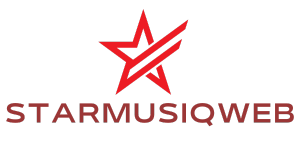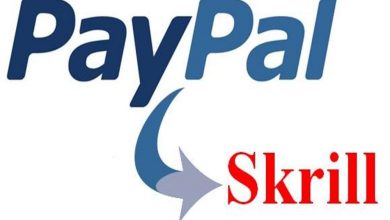Comparing In-House vs Outsourced Payroll Services: Which is Right for You?

Key Takeaways:
- Advantages and challenges of in-house vs. outsourced payroll.
- Importance of compliance and staying updated with payroll regulations.
- Understanding the cost implications for both payroll management options.
- Considering the security measures needed to protect payroll data.
- How technology plays a role in optimizing payroll processes.
- Decision-making factors in choosing the right payroll approach for your business.
Introduction to Payroll Management Choices
The choice between managing payroll in-house and outsourcing to dedicated services is a pivotal decision for businesses. It impacts financial management, staff workload, compliance with tax regulations, and overall employee satisfaction. As companies strive to optimize their operations, considering payroll services becomes essential for a structured and efficient approach to handling employee compensation.
Each option presents unique benefits and potential drawbacks. In-house payroll offers control and direct access to payroll data, whereas outsourcing often provides enhanced expertise and frees up internal resources. Both methods must meet the same goal: accurate, timely, and compliant payroll management.
In-Depth Look at In-House Payroll Management
In-house payroll management is characterized by direct control and oversight of all payroll functions. This method can benefit organizations by giving them the expertise and resources to handle complex payroll tasks effectively. An in-house team intimately familiar with company policies and employee nuances can provide personalized management and immediate responses to payroll inquiries. However, this comes with ensuring that the team stays informed and current with payroll legislation, investing in effective payroll software, and dedicating sufficient resources to the payroll department.
This mode of payroll management can lead to substantial investments in software, equipment, and training for the payroll staff. Aside from dedicated professionals, in-house payroll can be vulnerable to errors resulting from a multifaceted payroll landscape, particularly for growing businesses with evolving needs.
The Advantages of Outsourced Payroll Services
Outsourcing payroll represents an opportunity for businesses to leverage the expertise of specialists who dedicate themselves to the complexities of payroll processing. By entrusting payroll responsibilities to an external provider, firms can realize a reduction in operational costs and mitigate the risk of payroll errors. Outsourcing partners are typically better equipped to adapt quickly to changes in payroll regulations, ensuring compliance and reducing the burden of legal liabilities upon businesses.
Nevertheless, choosing to outsource introduces a new dynamic into the business relationship. Companies must vet providers thoroughly to ensure that communication is clear, services are reliable, and the provider can scale services in line with the business’s growth. Onboarding with an outsourced service provider requires trust, as it involves sharing sensitive employee data and placing a crucial business function into the hands of another entity.
Regulatory Compliance and Payroll Management
Deciphering the maze of laws and regulations that govern payroll management is one of the main challenges for any business. Failing to meet legal requirements can result in significant penalties and negative implications on the company’s reputation. In an in-house setup, this demands that the payroll team understands current laws and remains vigilant to updates and changes. Outsourced payroll partners typically have a well-established framework for compliance, continuously updating their practices in response to legislative developments. This support can provide a much-needed buffer against the uncertainties of regulatory compliance.
Businesses must acknowledge that compliance is not a stationary target but an ongoing process of adaptation and integration of the latest legislative information.
Technology’s Role in Streamlining Payroll
The introduction of advanced payroll technology has considerably eased the strain of payroll tasks. Automation tools and software have become staples in in-house and outsourced models, designed to improve accuracy and efficiency. These technologies reduce manual workloads significantly and have proven to be instrumental in managing complex payroll calculations and tax filings with precision. Cloud-based platforms have expanded the boundaries of payroll management, providing mobile and remote capabilities that support today’s flexible working environments.
As the anticipation for technological integration grows, the advent of artificial intelligence and machine learning within payroll systems offers both automation and intelligent insights that can drive strategic business decisions related to workforce management and resource allocation.
Detailed Cost Analysis of Payroll Options
While in-house payroll management may initially seem to be the more cost-effective option due to the absence of outsourcing fees, the actual costs encompass hardware, software, and particularly, payroll staff expenditures. Outsourced services present a clear fee structure but must be assessed for their value over the long term, considering the scalability and range of services included.
An accurate cost analysis must include all factors—from initial setup to ongoing maintenance, compliance updates, and the impact of potential payroll errors on the business’s financial health. Cost-effectiveness must be weighed against the return on investment regarding time saved, reduced error rates, and employee satisfaction with payroll services.
Security Protocols for Payroll Data
Payroll data is among the company’s most sensitive information, requiring the utmost protection, whether managed in-house or through a third party. Enterprise-level data protection involves stringent security measures such as encryption, multi-factor authentication, and regular audits to ensure the highest standards in safeguarding employee information and maintaining confidentiality.
For companies considering outsourced payroll services, due diligence in verifying a provider’s security credentials is essential. Reputable payroll companies invest heavily in security infrastructure to protect their client’s data and maintain trust.
Choosing the Best Payroll Path for Your Business
Decision-making between in-house and outsourced payroll is multifaceted and depends greatly on each company’s context. Factors such as company size, staff expertise, scalability, regulatory complexity, and cost must all be inventoried and assessed. The choice should align with the business’s long-term goals and strategies, supporting operational efficiencies and contributing to a positive working environment.
Ultimately, the decision to manage payroll should reconcile operational control with the practical realities of managing an effective payroll system. Whether choosing to keep payroll in-house or outsource, the goal remains the same—to ensure that employees are paid accurately and on time within a compliant, secure, and cost-efficient system.



